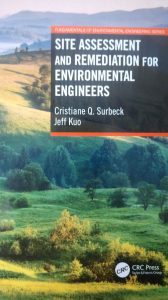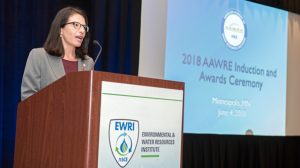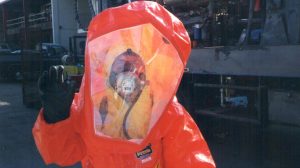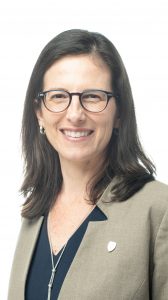When Cristiane “Cris” Q. Surbeck, associate professor of civil engineering at the University of Mississippi, began writing her first textbook, she had in mind students, professionals and instructors who needed a framework to learn about investigating and cleaning up contaminated soil and groundwater.
With thousands of contaminated sites in the United States and around the world, skills are sorely needed to remediate them.
“Site Assessment and Remediation for Environmental Engineers” (2021, CRC Press), co-authored by Surbeck and Jeff Kuo, a professor of civil and environmental engineering at California State University, Fullerton, gives people those skills. The two wrote the volume because there hadn’t been an updated textbook in environmental remediation in many years. The book guides readers to develop a design, operation and maintenance strategy to clean up a contaminated site.

Cris Surbeck, UM associate dean and associate professor of civil engineering, has written her first textbook, ‘Site Assessment and Remediation for Environmental Engineers’ (2021, CRC Press). Submitted photo
“It was time for a new book,” Surbeck said. “Most professors who teach the material do so without a textbook, or with research-oriented books, or with a more than 20-year-old textbook.”
Apparently, the author’s pre-assessment has proven true. Since its publication, the book has been praised by leaders in the field.
Phillip L. Thompson, PE, professor and director of the Center for Environmental Justice and Sustainability at Seattle University, adopted Surbeck’s textbook for his spring-quarter course in hazardous waste engineering.
“It was so great to see a badly needed, updated resource for this field,” he wrote.
“Your new book is really very necessary for people joining this great profession, or as a reminder for people of experience,” wrote Robert Pinon, principal engineer at Apex Cos. LLC in Pleasant Hill, California. “Among all the achievements, this will be a contribution that will last for generations. Like the Fogler for chemical kinetics, or the Metcalf and Eddy for water treatment.”
The book offers the reader project-oriented knowledge, focusing on practical calculations and skills needed to investigate the extent of contamination at a site and then design and operate remediation systems according to the site conditions.
The authors aimed to educate both university students and professionals such as consultants, industrial environmental health and safety personnel, and government regulatory employees. The many example problems are based on real scenarios and point out tricky problem-solving situations.
Surbeck said the pandemic definitely posed challenges for her during the writing process.

Cris Surbeck, who served as president of the American Society of Civil Engineers’ Environmental and Water Resources Institute, presides at its 2018 annual meeting. Submitted photo
“My regular workload increased a lot,” she said. “I had to spend a lot more time preparing for classes and learning COVID-19 protocols for working on campus and living in general. So that left less time to work on the book. On the other hand, working from home for several months during the pandemic was actually kind of peaceful and gave me extra focus when I did have time for the book.”
A licensed professional engineer and associate dean of UM’s School of Engineering, Surbeck teaches environmental and water resources engineering courses. Her research topics include understanding how and when microbial pollutants move through water bodies, and using green infrastructure to affect the quantity and quality of stormwater.

Cris Surbeck dons a hazardous materials suit during a site visit to a water treatment plant. Submitted photo
Surbeck led the university’s chapter of Engineers Without Borders on three trips to work on construction and well drilling projects in a rural village in Togo, West Africa. In 2015, she was elected to the governing board of the American Society of Civil Engineers’ Environmental and Water Resources Institute and served as its president during 2017-18.
She holds a bachelor’s degree in civil engineering from the University of Maryland, and master’s and doctoral degrees in environmental engineering from the University of California, Irvine.
To purchase copies of Surbeck and Kuo’s textbook, click here.
